
Clive Bull 1am - 4am
22 April 2023, 10:00 | Updated: 23 April 2023, 02:03
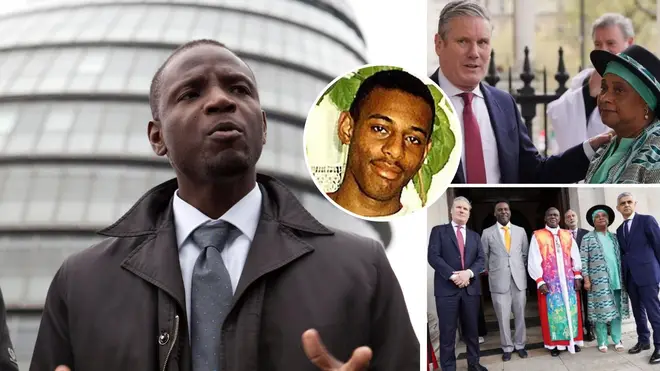
Stephen Lawrence's friend Duwayne Brooks has revealed he is planning to run as the Conservative candidate to challenge Sadiq Khan in next year's mayoral election, as a memorial is held to mark the 30th anniversary of the teenager's murder.
Mr Brooks, who was with Stephen on the night he was stabbed to death, says he is planning to run as "nothing has changed" three decades on from his friend's murder.
Four years after Stephen's death, the Macpherson report was launched.
It detailed how Stephen's killing had been "marred by a combination of professional incompetence, institutional racism and a failure of leadership".
But exactly 30 years after Stephen's murder, Mr Brooks has insisted "what happened then is still happening".
Read more: Prince of Wheels: New photos of beaming birthday boy Louis released to mark royal turning five
A private memorial service was held at St Martin-in-the-Fields Church in Trafalgar Square on Saturday to mark 30 years since Stephen's death, attended by Labour leader Sir Keir Starmer and current London Mayor Sadiq Khan.
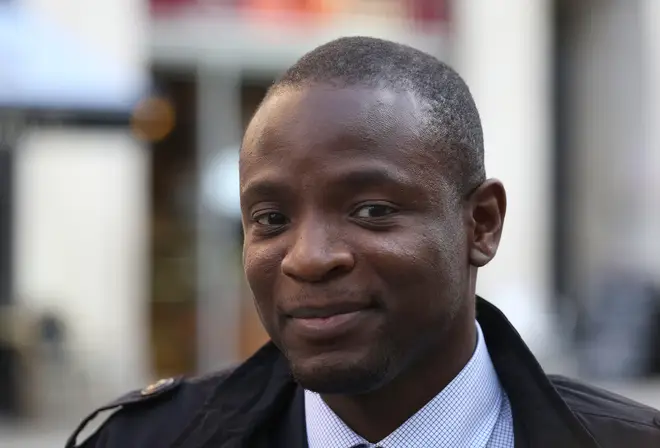
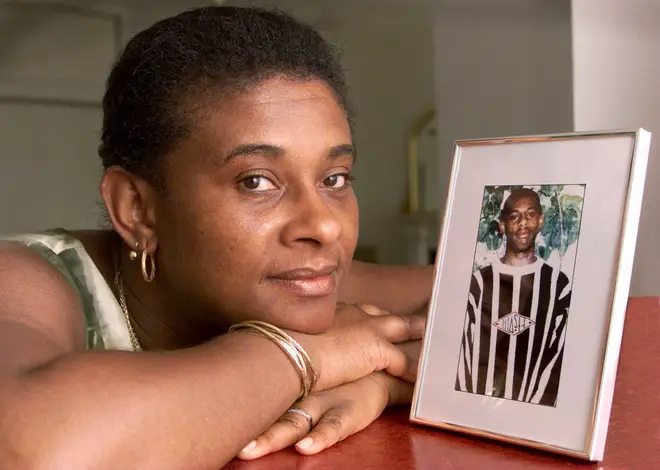
Speaking to the Mirror, Mr Brooks said: "Racism, discrimination: still happening. Poor policing, poor leadership: still happening. Young people dying from knife injuries: still happening. Politics getting in the way of doing what’s right: still happenin.
"As long as all those things are still happening, there can’t be closure. People still experience what I did as a child."
Mr Brooks was with his friend Stephen, 18, when he was stabbed to death in south east London.
He called the police before an off-duty police officer took over the call.
"Help arrived but it was too late," Mr brooks added.
Gary Dobson, 47, and David Norris, 46, were jailed Stephen’s for murder, but were the only gang members to be convicted.
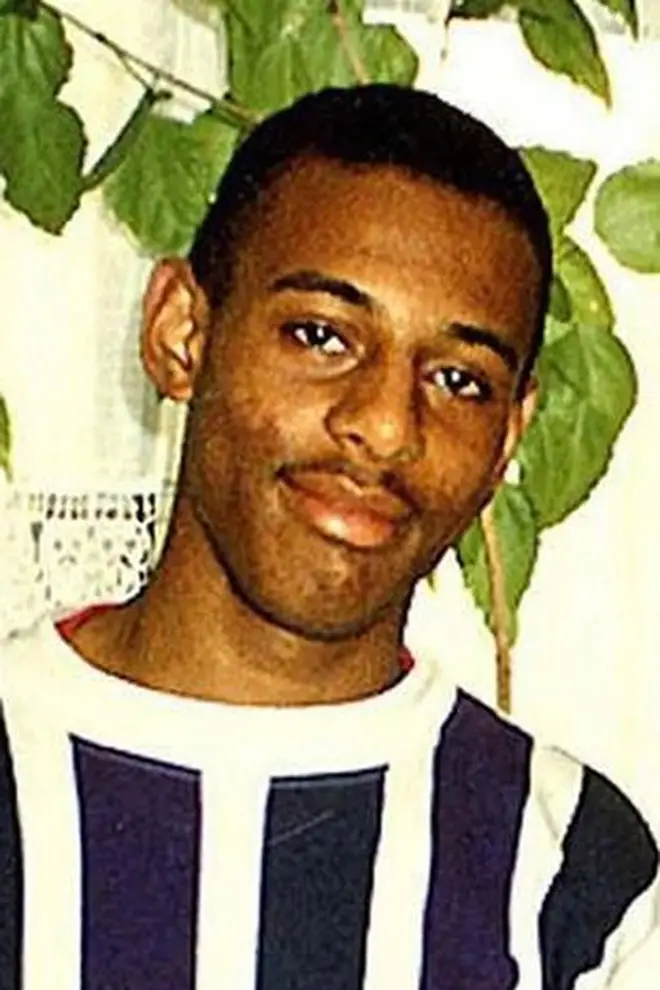
Mr Brooks revealed in 2018 that he wanted to run for Mayor of London, but his ambitions never materialised.
He adds: "If the leaders we elect can’t control a police service that’s supposed to protect us then we need to elect new leaders."
Read More: Stephen Lawrence’s racist murderer David Norris scarred for life after prison attack
Following the Macpherson report, 70 recommendations were made to the Met Police, designed to show "zero tolerance" for racism in society.
It included measures to transform the attitude of the police towards racism, as well as improve accountability.
Some action was taken after the report, including the introduction of targets for the recruitment, retention and promotion of black police officers.
In 2009, ten years after Sir William Macpherson's report on the failings that helped Stephen Lawrence's racist killers escape justice, the Met said it was no longer institutionally racist.
Read More: No UK police force is institutionally racist says Chief Constable of Greater Manchester Police
But a recent report into the culture at the Metropolitan Police exposed widespread abuse, misconduct and a "laddish" culture within the force.
The Casey Review shows widespread coercive behaviour by male officers, misogyny, homophobia and racism.
It also highlights the role of senior officers and the way in which it was easier to "shift the problem” than deal with deeply engrained issues affecting serving officers.

GMP Chief Constable: ‘Institutionally racist doesn’t apply to any UK forces.’
More recently, the Chief Constable of Greater Manchester Police told LBC that no UK police force is institutionally racist.
Speaking during a call-in on LBC's Nick Ferrari at Breakfast, Chief Constable Stephen Watson said the problem with the phrase was that "it is also being applied by different people in different contexts across the board".
He said it was at risk of becoming "a fluid descriptor" as there was a lack of the "same discipline of interpretation".
"I think it is a little unclear as to what [institutional racism] means but I do think there is a grave danger of almost reaching for a rigid interpretation of a well thought out definition," he said.
"The public will understandably take the view that if you say we’re institutionally this, that or the other, then that means as an organisation we either genuinely don’t care, we genuinely don’t find that behaviours of the sort described are somehow inimitable to our values or at best we’re just too incompetent to sort it out."
Mr Watson continued: "I think it possible that a police force could be institutionally racist but I just don't think that applies to any of the UK police forces."
He went on to say: "I think the phrase has become politicised in certain circles.
"I do think it difficult - it's certainly not a term that I would accept in respect of Greater Manchester Police.
"My sense of course is that institutionally we're against these behaviours, institutionally our values are designed to eradicate these behaviours.
"Institutionally, if somebody is found guilty or behaving in these ways, we root them out and boot them out and we do that really ruthlessly."

At the service marking three decades since Stephen was killed, Sir Keir gave a short speech and read a poem by Maya Angelou Baroness Lawrence's request.
He told attendees that, "contrasted against the very worst side of Britain, Stephen "represented the best", and lamented the loss of a life "which shone with the light of potential".
Baroness Lawrence said that Stephen's story "remains as important and relevant as ever” 30 years after his death, and added that she is “filled with immense pride to witness all that has been achieved in his name”.

“From launching education initiatives to opening up career pathways and inspiring community engagement, Stephen’s legacy has touched countless young lives and moved us closer towards a more just and equitable society,” she said in a statement.
“Yet, we must also acknowledge the work still to be done.
“Inequality persists, and our mission to create a world free from discrimination continues.”
She said: “we will ensure that Stephen’s legacy endures, inspiring change and uniting us in the pursuit of justice and equity for all”.
In a statement marking the anniversary, Met Police Commissioner Sir Mark Rowley apologised on behalf of the force for "past failings" and said it had "let black communities down".
"We offer our sympathies to the Lawrence family on their unimaginable loss," he said.
"Their dignified fight for justice, conducted in the pressure of the public eye with unwavering determination over so many years, continues to be a source of inspiration for us and so many.
"On behalf of the Metropolitan Police, I apologise again for our past failings which will have made the grief of losing a loved one all the more difficult to endure.
"We have let black communities down.
They feel over policed and under protected. We are still not sufficiently representative of London, black officers and staff still face discrimination and are not always sufficiently supported to progress within the Met.
"There are disproportionalities and systemic biases in our use of policing tactics and our support to victims of crime.
"We are deeply sorry for these failings."
Speaking outside the church, Sadiq Khan repeated his assertion that the Met is still “institutionally racist”.
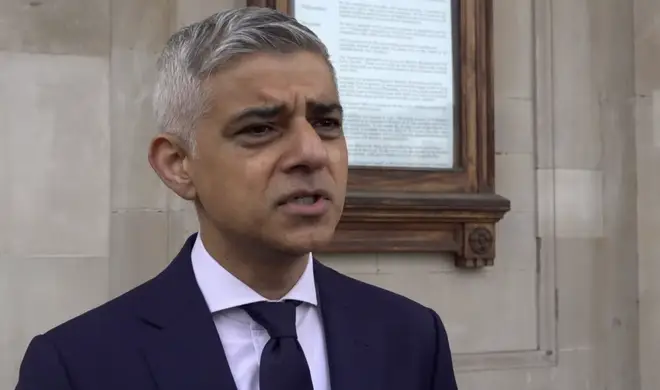
He said: “We’re here today to celebrate and remember Stephen Lawrence’s life, his legacy but also the extraordinary work that’s taken place by his family, Doreen Lawrence and by their team and address the issues of equality, diversity and inclusion.
“It’s 30 years since Stephen Lawrence was brutally murdered, I remember it well as a south Londoner.
“For those of us who are people of colour it had a ripple effect on us, ripples of hate but also the appalling way that the family was let down by the Met Police Service, by the media and by some politicians. Thirty years on, we’ve not made the progress we’d hope to have made.
“It’s really important that we recognise that 30 years on, Dame Louise Casey has found the Met Police to still be institutionally racist, we can’t ignore that or equivocate on that, we’ve got to make progress.”